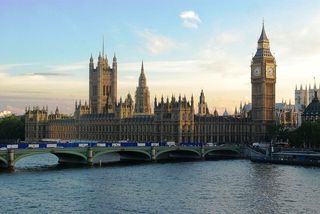Investigatory Powers bill’s security backdoors ‘won’t make iPhone illegal’
Encryption backdoors survive proposed House of Lords amendments

Accessing people's data via security backdoors will form a key part of the Investigatory Powers Bill, despite arguments it could make the new iPhone illegal, it emerged in Parliament this week.
The government's deputy leader in the House of Lords, Earl Howe, was adamant the bill must require telecoms companies to break or remove their own encryption to give government agencies access to people's personal data.
Debating the bill, he said: "If we do not provide for access to encrypted communications when it is necessary and proportionate to do so, we must simply accept that there can be areas online beyond the reach of the law, where criminals can go about their business unimpeded and without the risk of detection."
Howe added: "Enforcement and the intelligence agencies must retain the ability to require telecommunications operators to remove encryption in limited circumstancessubject to strong controls and safeguardsto address the increasing technical sophistication of those who would seek to do us harm."
He was defending the backdoor element of the bill from proposed amendments 92, 102 and 103, which would have removed this section of the legislation.
"They are an [sic] irresponsible proposals, which would remove the government's ability to give a technical capability notice to telecommunications operators requiring them to remove encryption from the communications of criminals, terrorists and foreign spies," Howe said.
However, one proponent of the amendments, the Liberal Democrats' Lord Paul Strasburger, suggested the Investigatory Powers' backdoors are incompatible with IT companies' use of end-to-end encryption.
Get the ITPro. daily newsletter
Receive our latest news, industry updates, featured resources and more. Sign up today to receive our FREE report on AI cyber crime & security - newly updated for 2024.
"The implication of what he is saying is that no one may develop end-to-end encryption," he said.
"He seems to be implying that providers can use only encryption which can be broken and therefore cannot be end to end, so the next version of the Apple iPhone would, in theory, become illegal."
Howe denied this, instead insisting that "there will be circumstances where it is reasonably practicable for a company to build in a facility to de-encrypt the contents of communication".
None of the above amendments were made to the bill. Its passage through Parliament continues with debate in the House of Lords, after the House of Commons voted it through with 444 MPs in favour.




